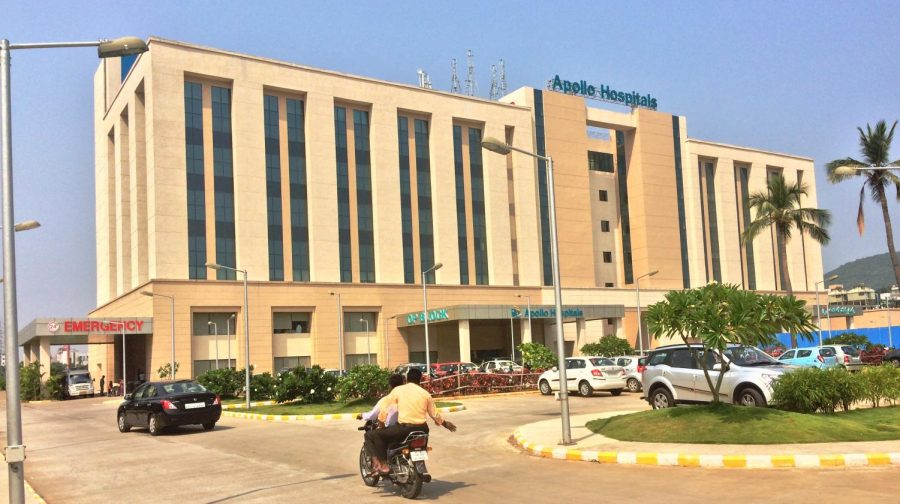India announces to expand new healthcare system
Provided by Wikimedia Commons
Dr. Prathap Reddy, the chairman and founder of Apollo Hospitals, a large chain of private hospitals operating in India, believes the new healthcare system will be the largest change to Indian healthcare in decades. The Indian government recently announced their plan to expand healthcare coverage to 500 million more Indians.
March 8, 2018
India announced their plans to institute a new healthcare system that would reportedly give 500 million Indians free healthcare by early February. This major change comes before a crucial general election next year and would relieve millions of Indians of some financial burden.
Payment for the new system comes out of the country’s 2018-2019 budget and is a major change to the meager 1.3 percent of India’s gross domestic product (GDP) spent on healthcare the previous year.
In a statement, Finance Minister of India Arun Jaitley explained the change is expected to improve the living conditions of the country’s rural and agricultural communities, as the healthcare plan provides many previously uninsured families several thousand dollars per year to spend on medical expenditures. He additionally confirmed that the government would levy a surtax and would possibly tax capital gains as well to raise money for their plans to build $188 million worth of new “health and wellness” centers.
Dr. Prathap Reddy, the chairman and founder of Apollo Hospitals, a large chain of private hospitals operating in India, believes the healthcare change will be a large and possibly difficult to manage transformation.
“This is the largest change in government-run healthcare I’ve seen in my lifetime,” Reddy said. “The number of covered people will essentially double, meaning the government will have to spend more money on healthcare than ever before.”
More details for the new healthcare system will be laid out in the Indian parliament sometime in the next few days.
Economics teacher Sam Lepler believes the quality of care is contingent on how much of the annual budget the government decides to apportion to funding it. Because of the large scale of coverage expansion, costs will be extremely high and may be difficult for the government to pay while still maintaining the same standards of care.
“It all really depends on the amount of funding they are able to put in,” Lepler said. “If you cover 500 million more people with free healthcare, it’s going to cost a lot, so the quality of care really depends on how much money the government is willing to spend on healthcare compared to last year.”
If implemented however, Lepler said that free healthcare could potentially make a large impact on Indian lives.
“[Their lives] can be tremendously different,” Lepler said. “If you are uninsured in America for example and you get a heart attack, you will probably get a medical bill of a hundred to two hundred thousand dollars for a week or two in the hospital. That would make you bankrupt and would essentially ruin your life. Having health insurance prevents that from happening.”
This piece was originally published in the pages of the Winged Post on March 6, 2018,


















![“[Building nerf blasters] became this outlet of creativity for me that hasn't been matched by anything else. The process [of] making a build complete to your desire is such a painstakingly difficult process, but I've had to learn from [the skills needed from] soldering to proper painting. There's so many different options for everything, if you think about it, it exists. The best part is [that] if it doesn't exist, you can build it yourself," Ishaan Parate said.](https://harkeraquila.com/wp-content/uploads/2022/08/DSC_8149-900x604.jpg)




![“When I came into high school, I was ready to be a follower. But DECA was a game changer for me. It helped me overcome my fear of public speaking, and it's played such a major role in who I've become today. To be able to successfully lead a chapter of 150 students, an officer team and be one of the upperclassmen I once really admired is something I'm [really] proud of,” Anvitha Tummala ('21) said.](https://harkeraquila.com/wp-content/uploads/2021/07/Screen-Shot-2021-07-25-at-9.50.05-AM-900x594.png)







![“I think getting up in the morning and having a sense of purpose [is exciting]. I think without a certain amount of drive, life is kind of obsolete and mundane, and I think having that every single day is what makes each day unique and kind of makes life exciting,” Neymika Jain (12) said.](https://harkeraquila.com/wp-content/uploads/2017/06/Screen-Shot-2017-06-03-at-4.54.16-PM.png)








![“My slogan is ‘slow feet, don’t eat, and I’m hungry.’ You need to run fast to get where you are–you aren't going to get those championships if you aren't fast,” Angel Cervantes (12) said. “I want to do well in school on my tests and in track and win championships for my team. I live by that, [and] I can do that anywhere: in the classroom or on the field.”](https://harkeraquila.com/wp-content/uploads/2018/06/DSC5146-900x601.jpg)
![“[Volleyball has] taught me how to fall correctly, and another thing it taught is that you don’t have to be the best at something to be good at it. If you just hit the ball in a smart way, then it still scores points and you’re good at it. You could be a background player and still make a much bigger impact on the team than you would think,” Anya Gert (’20) said.](https://harkeraquila.com/wp-content/uploads/2020/06/AnnaGert_JinTuan_HoHPhotoEdited-600x900.jpeg)

![“I'm not nearly there yet, but [my confidence has] definitely been getting better since I was pretty shy and timid coming into Harker my freshman year. I know that there's a lot of people that are really confident in what they do, and I really admire them. Everyone's so driven and that has really pushed me to kind of try to find my own place in high school and be more confident,” Alyssa Huang (’20) said.](https://harkeraquila.com/wp-content/uploads/2020/06/AlyssaHuang_EmilyChen_HoHPhoto-900x749.jpeg)










